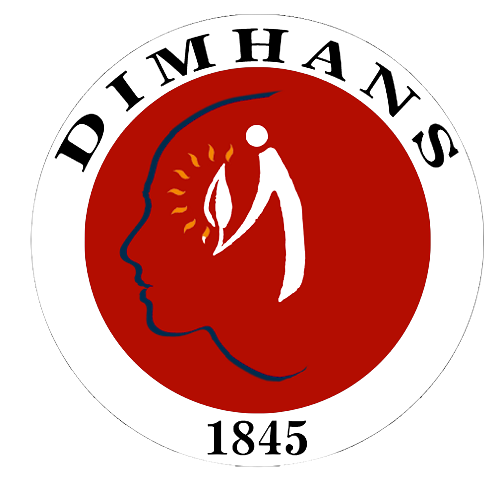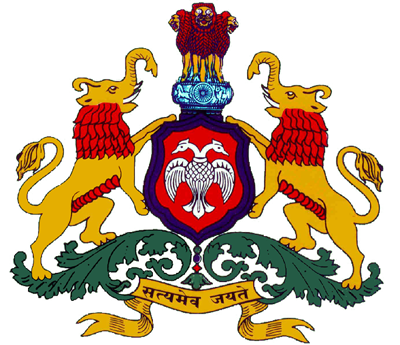Ayushman Bharat Digital Mission (ABDM)
The Ayushman Bharat Digital Mission (ABDM) aims to develop the backbone necessary to support the integrated digital health infrastructure of the country. It will bridge the existing gap amongst different stakeholders of Healthcare ecosystem through digital highways.
To strengthen the accessibility and equity of health services, including continuum of care with citizen as the owner of data, in a holistic healthcare programme approach leveraging IT & associated technologies and support the existing health systems in a ‘citizen-centric’ approach, the Ayushman Bharat Digital Mission (ABDM) envisages the following specific objectives:
The National Health Policy (NHP) 2017 has the following goal:
“The attainment of the highest possible level of health and wellbeing for all at all ages, through a preventive and promotive health care orientation in all developmental policies, and universal access to good quality health care services without anyone having to face financial hardship as a consequence.”In a follow-up of the NHP’s specific goals for adopting digital technologies, the Ministry of Health and Family Welfare constituted a committee headed by Shri J. Satyanarayana to develop an implementation framework for the National Health Stack. This committee produced the National Digital Health Blueprint (NDHB), laying out the building blocks and an action plan to comprehensively and holistically implement digital health.Taking forward the NDHB, this document describes the broad context, rationale, scope, and implementation arrangements for a digital ecosystem for healthcare services across the country. Since the implementation is envisioned to be in a mission mode, the initiative is referred to as the Ayushman Bharat Digital Mission (ABDM).
Vision
To create a national digital health ecosystem that supports universal health coverage in an efficient, accessible, inclusive, affordable, timely and safe manner, that provides a wide-range of data, information and infrastructure services, duly leveraging open, interoperable, standards-based digital systems, and ensures the security, confidentiality and privacy of health-related personal information.
Objectives
To strengthen the accessibility and equity of health services, including continuum of care with citizen as the owner of data, in a holistic healthcare programme approach leveraging IT & associated technologies and support the existing health systems in a 'citizen-centric' approach, the Ayushman Bharat Digital Mission (ABDM) envisages the following specific objectives:
To establish state-of-the-art digital health systems, to manage the core digital health data, and the infrastructure required for its seamless exchange;
To establish registries at appropriate level to create single source of truth in respect of clinical establishments, healthcare professionals, health workers, drugs and pharmacies;
To enforce adoption of open standards by all national digital health stakeholders;
To create a system of personal health records, based on international standards, easily accessible to individuals and healthcare professionals and services providers, based on individual’s informed consent;
To promote development of enterprise-class health application systems with a special focus on achieving the Sustainable Development Goals for health;
To adopt the best principles of cooperative federalism while working with the States and Union Territories for the realization of the vision;
To ensure that the healthcare institutions and professionals in the private sector participate actively with public health authorities in the building of the Ayushman Bharat Digital Mission (ABDM), through a combination of prescription and promotion;
To ensure national portability in the provision of health services;
To promote the use of clinical decision support (CDS) systems by health professionals and practitioners;
To promote a better management of the health sector leveraging health data analytics and medical research;
To provide for enhancing the efficiency and effectiveness of governance at all levels;
To support effective steps being taken for ensuring quality of healthcare; and
To strengthen existing health information systems, by ensuring their conformity with the defined standards and integration with the proposed Ayushman Bharat Digital Mission (ABDM).The current strong public digital infrastructure—including that related to Aadhaar, Unified Payments Interface and wide reach of the Internet and mobile phones (JAM trinity) —provides a strong platform for establishing the building blocks of Ayushman Bharat Digital Mission (ABDM). The existing ability to digitally identify people, doctors, and health facilities, facilitate electronic signatures, ensure non-repudiable contracts, make paperless payments, securely store digital records, and contact people provide opportunities to streamline healthcare information through digital management.
Benefits
The implementation of Ayushman Bharat Digital Mission (ABDM) is expected to significantly improve the efficiency, effectiveness, and transparency of health service delivery overall. Patients will be able to securely store and access their medical records (such as prescriptions, diagnostic reports and discharge summaries), and share them with health care providers to ensure appropriate treatment and follow-up. They will also have access to more accurate information on health facilities and service providers. Further, they will have the option to access health services remotely through tele-consultation and e-pharmacy. Ayushman Bharat Digital Mission (ABDM)will empower individuals with accurate information to enable informed decision making and increase accountability of healthcare providers.Ayushman Bharat Digital Mission (ABDM) will provide choice to individuals to access both public and private health services, facilitate compliance with laid down guidelines and protocols, and ensure transparency in pricing of services and accountability for the health services being rendered.Similarly, health care professionals across disciplines will have better access to patient’s medical history (with the necessary informed consent) for prescribing more appropriate and effective health interventions. The integrated ecosystem will also enable better continuum of care. Ayushman Bharat Digital Mission (ABDM) will help digitize the claims process and enable faster reimbursement. This will enhance the overall ease of providing services amongst the health care providers.At the same time, policy makers and programme managers will have better access to data, enabling more informed decision making by the Government. Better quality of macro and micro-level data will enable advanced analytics, usage of health-biomarkers and better preventive healthcare. It will also enable geography and demography-based monitoring and appropriate decision making to inform design and strengthen implementation of health programmes and policies.Finally, researchers will greatly benefit from the availability of such aggregated information as they will be able to study and evaluate the effectiveness of various programmes and interventions. Ayushman Bharat Digital Mission (ABDM) would facilitate a comprehensive feedback loop between researchers, policymakers, and providers.
Building Block
‘Think Big, Start Small, and Scale Fast’ approach allows for accelerated and continuous learning’s-based implementation.
ABHA Number
It is important to standardize the process of identification of an individual across healthcare providers. This is the only way to ensure that the created medical records are issued to the correct individual or accessed by Health Information User through appropriate consent. In order to issue the UHID, the system must collect certain basic details including demographic and location, family/relationship, and contact details. Ability to update contact information easily is the key. The ABHA number will be used for the purposes of uniquely identifying persons, authenticating them, and threading their health records (only with the informed consent of the patient) across multiple systems and stakeholders.
Healthcare Professionals Registry (HPR)
It is a comprehensive repository of all healthcare professionals involved in delivery of healthcare services across both modern and traditional systems of medicine. Enrolling in the Healthcare Professionals Registry will enable them to get connected to India’s digital health ecosystem. It is a comprehensive repository of health facilities of the nation across different systems of medicine. It includes both public and private health facilities including hospitals, clinics, diagnostic laboratories and imaging centers, pharmacies, etc. Enrolling in the Health Facility Registry will enable them to get connected to India's digital health ecosystem.
ABHA Mobile App(PHR)
A PHR is an electronic record of health-related information on an individual that conforms to nationally recognized interoperability standards and that can be drawn from multiple sources while being managed, shared, and controlled by the individual. The most salient feature of the PHR, and the one that distinguishes it from the EMR and EHR, is that the information it contains is under the control of the individual. The functions that are supported by a Personal Health Record-System (PHR) will enable an individual to manage information about his or her healthcare. This includes viewing of a longitudinal record, comprising of all health data, lab reports, and treatment details, discharge summaries across one or multiple health facilities.
Key features of the ABHA mobile application are:
Creation of ABHA Address
Discovery of Health Information
Linking of health records/ with a given ABHA Address
View Health Records
Management of consents

















